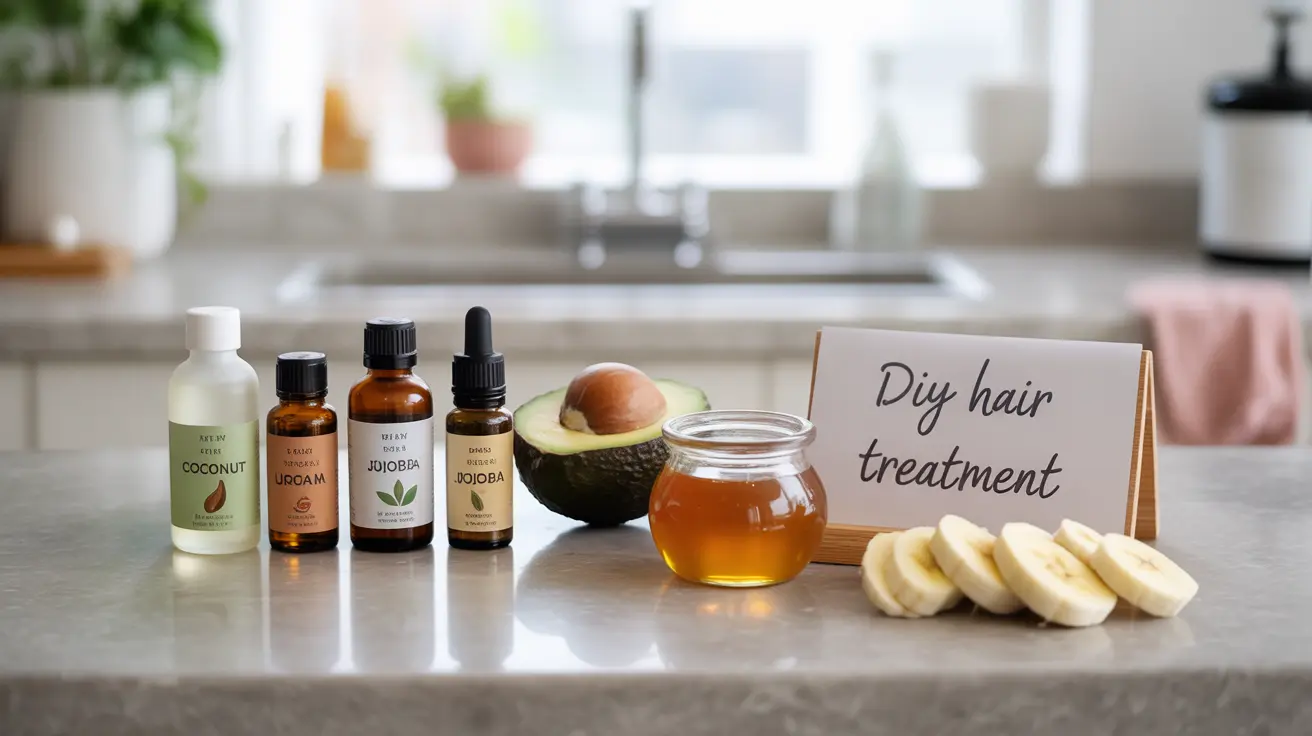Dealing with dry hair can be frustrating and affect your confidence, but understanding the right treatment approaches can help restore your hair's natural moisture and shine. Whether you're experiencing seasonal dryness or chronic hair dehydration, implementing proper care techniques and treatments can make a significant difference in your hair's health and appearance.
This comprehensive guide will explore various dry hair treatment options, from natural remedies to lifestyle adjustments, helping you achieve the healthy, moisturized hair you desire.
Understanding the Causes of Dry Hair
Before diving into treatments, it's essential to understand what causes dry hair. Several factors can contribute to hair becoming dry and brittle:
- Overwashing and harsh shampoos
- Heat styling tools
- Chemical treatments
- Environmental factors (sun, wind, chlorine)
- Nutritional deficiencies
- Hormonal changes
- Medical conditions
Natural Oils and Masks for Dry Hair Treatment
Natural oils and hair masks can provide deep conditioning and help restore moisture to dry hair. Here are some effective options:
Essential Natural Oils
These oils can be particularly beneficial for treating dry hair:
- Coconut oil: Penetrates the hair shaft for deep moisture
- Argan oil: Rich in vitamin E and fatty acids
- Jojoba oil: Closely mimics natural scalp oils
- Almond oil: Provides deep nourishment and shine
DIY Hair Masks
Create these nourishing masks at home for effective dry hair treatment:
- Avocado and egg mask
- Honey and olive oil treatment
- Banana and yogurt mixture
- Aloe vera and coconut oil blend
Proper Hair Care Routine for Moisture Retention
Adjusting your hair care routine is crucial for maintaining hydration:
- Use sulfate-free shampoos
- Wash hair less frequently
- Apply conditioner primarily to hair ends
- Use lukewarm water instead of hot
- Pat dry gently instead of rubbing
- Use microfiber towels or soft t-shirts for drying
Dietary Considerations for Hair Health
A balanced diet plays a crucial role in maintaining healthy hair. Focus on including:
- Omega-3 fatty acids
- Biotin-rich foods
- Protein sources
- Vitamin E
- Iron-rich foods
- Zinc-containing foods
Professional Treatment Options
When home remedies aren't enough, consider these professional treatments:
- Deep conditioning treatments
- Keratin treatments
- Professional hair masks
- Scalp treatments
- Bond-building treatments
Frequently Asked Questions
What are the most effective natural oils and masks for treating dry hair at home? The most effective natural oils include coconut oil, argan oil, and jojoba oil. For masks, combinations of avocado with egg, honey with olive oil, or banana with yogurt provide excellent moisture and nourishment.
How can I adjust my hair care routine to prevent and reduce dryness? Reduce washing frequency, use sulfate-free products, avoid hot water, limit heat styling, and always use a heat protectant. Deep condition regularly and protect hair while sleeping with a silk or satin pillowcase.
What causes dry hair and how do environmental factors contribute? Dry hair can be caused by overwashing, chemical treatments, heat styling, and environmental factors like sun exposure, wind, and low humidity. These elements can strip hair of its natural oils and moisture.
Are there specific dietary changes or vitamins that help improve dry hair condition? Yes, increasing intake of omega-3 fatty acids, biotin, protein, and vitamins A, C, and E can improve hair health. Foods rich in these nutrients include fish, eggs, nuts, and leafy greens.
When should I see a doctor about persistent dry hair or scalp problems? Consult a healthcare provider if dry hair persists despite proper care, if you notice excessive hair loss, if there's scalp pain or inflammation, or if the condition is accompanied by other health concerns.
Remember, treating dry hair requires patience and consistency. By combining proper hair care techniques with good nutrition and appropriate treatments, you can achieve healthier, more manageable hair.




